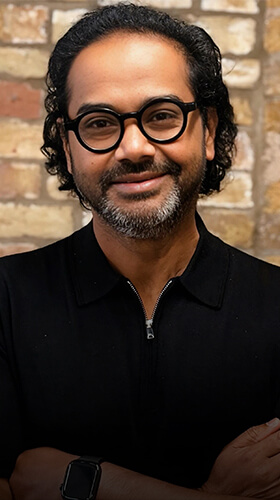 SPEAKERS
SPEAKERS
 TOPICS
TOPICS

We represent influential and inspiring Climate Change Speakers who are known worldwide. Browse through Speaker Agency speakers and get in touch!

















Welcome to a journey through the realm of climate change communication—a crucial domain where science, society, and advocacy converge. In an era marked by unprecedented environmental challenges, effective communication about climate change is more vital than ever before. Our planet is experiencing the far-reaching impacts of a changing climate, from extreme weather events to rising sea levels and disruptions in ecosystems. Understanding these complex issues and conveying them to the public is both a challenge and a responsibility.
We will delve into the multifaceted nature of this discipline, exploring the obstacles faced in conveying the urgency of climate action to diverse audiences. Climate change isn't a scientific concern- it's a global challenge that requires widespread awareness and concerted efforts. we will explore the nuances of addressing climate change denial, framing climate-related messages effectively, and leveraging the power of visuals and storytelling to make climate science relatable. We'll also navigate the ethical considerations inherent in climate communication and provide you with the tools and resources needed to engage in meaningful conversations about our planet's future.
This journey isn't about understanding climate change- it's about empowering individuals and communities to become informed advocates for climate action. Together, we'll embark on a quest to bridge the gap in public understanding and inspire collective efforts to combat climate change. So, let's embark on this enlightening voyage into the world of climate change communication and discover how knowledge, empathy, and effective communication can shape our future.
Navigating the terrain of climate change communication presents formidable challenges. At its core, this challenge stems from the intricate nature of climate science and the diverse audiences it must reach. Climate change is a complex, multifaceted phenomenon with far-reaching implications. Yet, conveying its intricacies to the public requires simplification without oversimplification—a delicate balancing act.
The key challenge is the inherent skepticism and misconceptions surrounding climate change. Skepticism can arise from a lack of understanding, ideological biases, or misinformation. Addressing these misconceptions head-on while preserving scientific accuracy is a daunting task.
Plus, climate change communication must contend with information overload. The digital age bombards us with data and news, often leaving climate-related messages buried beneath the noise. Cutting through this clutter to capture and retain public attention is no small feat.
Understanding your audience is a fundamental cornerstone of successful climate change communication. It's essential to recognize that not all individuals or groups share the same knowledge, beliefs, or values regarding climate change. Tailoring your message to resonate with the specific needs, interests, and prior knowledge of your target audience is key.
Whether communicating with policymakers, educators, activists, or the public, taking the time to comprehend their perspectives and concerns allows for more effective and relatable messaging. By adopting an audience-centered approach, climate communicators can break down barriers, foster engagement, and increase the likelihood of inspiring action and awareness on the critical issue of climate change.
The way we frame discussions about climate change significantly influences public perception and action. Climate change can be portrayed in various frames, emphasizing different aspects of the issue. Effective framing can create resonance and promote understanding among diverse audiences. For instance, framing climate change as a health issue highlights the immediate risks and health-related consequences, resonating with the healthcare sector.
Alternatively, framing it as an economic opportunity emphasizes the potential for job creation in renewable energy industries. The choice of frame can evoke specific emotions and associations, influencing how people interpret and respond to climate-related information. Framing is a potent tool in shaping climate narratives and motivating collective action.
Harnessing the power of visuals and storytelling is paramount in climate change communication. Visual content, such as infographics, videos, and compelling images, can simplify complex climate data, making it more accessible and memorable. These visual aids act as universal languages, transcending barriers of language and education to convey messages effectively. A well-designed infographic or an emotionally resonant photograph can encapsulate the essence of climate change in a single glance, leaving a lasting impression.
Storytelling, too, plays a pivotal role. Narratives connect the abstract concept of climate change to personal experiences, making it more relatable. Through stories, we can humanize climate impacts and solutions, invoking empathy and engagement. Real-life anecdotes of individuals affected by climate change or inspirational tales of communities embracing sustainable practices can captivate audiences, compelling them to act.
Combining visuals with storytelling creates a potent synergy. Visuals enhance the emotional impact of stories, reinforcing the message and facilitating better retention. For instance, pairing a graph depicting rising temperatures with a personal account of a farmer's struggle due to erratic weather patterns reinforces the urgency of climate action.
In essence, the marriage of visuals and storytelling is a dynamic strategy in climate change communication. It transforms data into a narrative that resonates with the heart and the mind, motivating individuals, communities, and policymakers to join the collective effort to combat climate change. It's a bridge between scientific data and human understanding, making the complex issue of climate change tangible and actionable.
Addressing climate change denial is a crucial aspect of effective climate communication. Denial often stems from misconceptions, ideological biases, or misinformation. To engage with climate change skeptics, it's essential to provide clear, evidence-based information. Open dialogue, emphasizing shared values, and finding common ground can be effective approaches. Highlighting the consensus among the scientific community and the overwhelming evidence of climate change's impacts can challenge denial narratives.
Plus, framing climate action as an opportunity for economic growth, health benefits, and global cooperation can bridge ideological divides and garner support from a broader audience. Ultimately, the goal is not to confront denial but to encourage constructive conversations that lead to informed choices and climate action.
The future of climate change communication is poised for transformation with advancing technology. Artificial Intelligence (AI) and automation are emerging as powerful allies. AI-driven tools can analyze vast datasets, helping communicators generate data-driven insights quickly. Virtual Reality (VR) and Augmented Reality (AR) are becoming more accessible, offering immersive experiences that allow users to visualize climate change impacts firsthand.
Social media's role will continue to evolve, with personalized climate change information and storytelling at the forefront. Plus, data analytics and AI will enable more tailored and effective climate messaging. As climate communication continues to adapt, technology will play an increasingly integral role in reaching and engaging diverse audiences, fostering greater understanding, and inspiring collective action.
In closing, the world of climate change communication is on the precipice of a profound transformation. It's a realm where science, innovation, and human connection converge. This is where we strive to bridge the gap in understanding and inspire collective action. As we've traversed this exploration of effective climate change communication, we recognize the pivotal role it plays in addressing the most pressing challenges of our time.
We've drawn inspiration from esteemed climate change speakers such as Azeem Azhar, Estella Struck, and Giles Hutchins. They have illuminated the path forward with their insights, passion, and commitment. Their dedication to climate advocacy and their ability to convey complex ideas with clarity and conviction serve as beacons of hope in the fight against climate change.
As we gaze toward the horizon, we see a future where technology, including AI and immersive experiences, will reshape the landscape of climate communication. Social media will continue to evolve as a powerful tool for spreading awareness and mobilizing action.